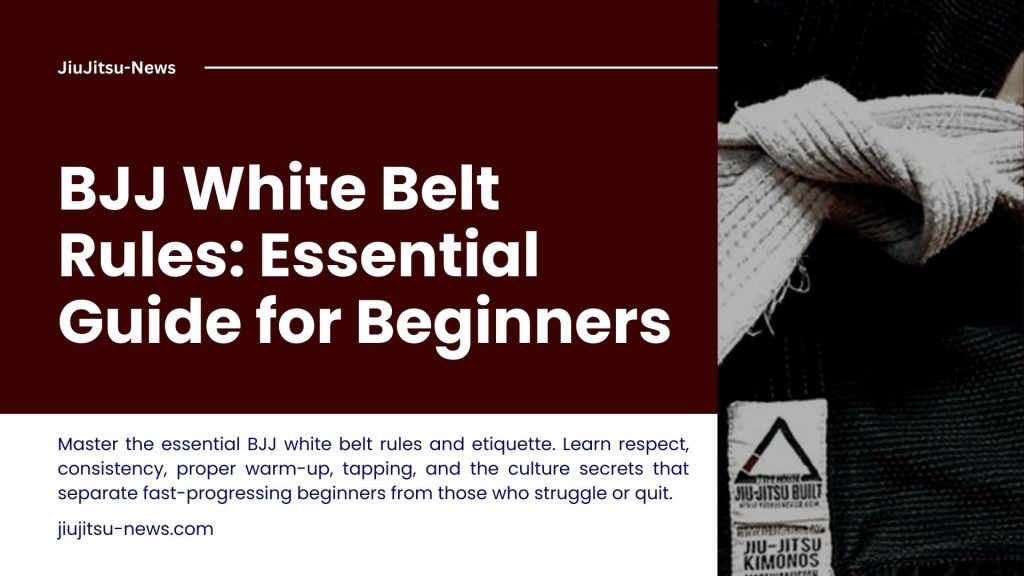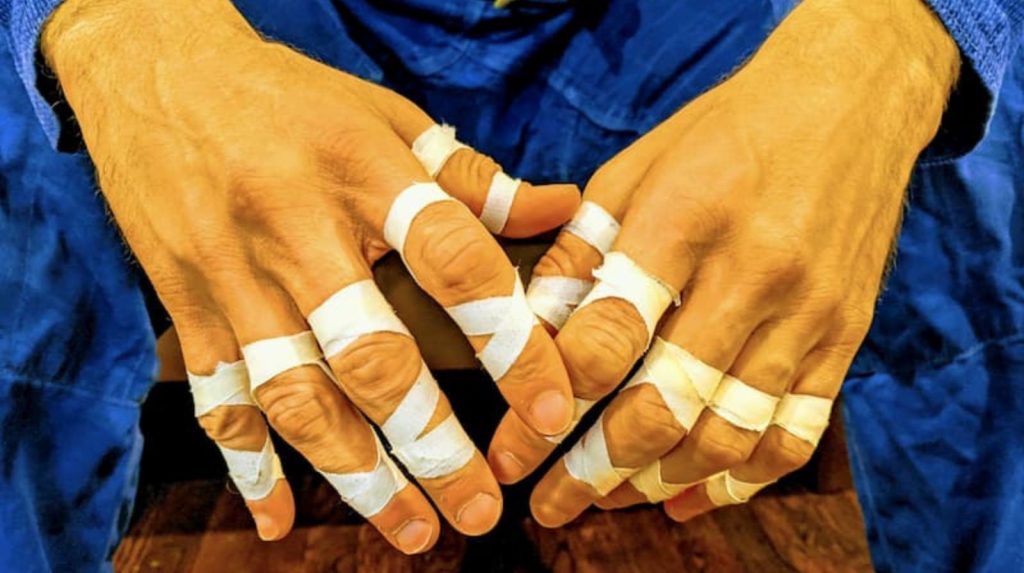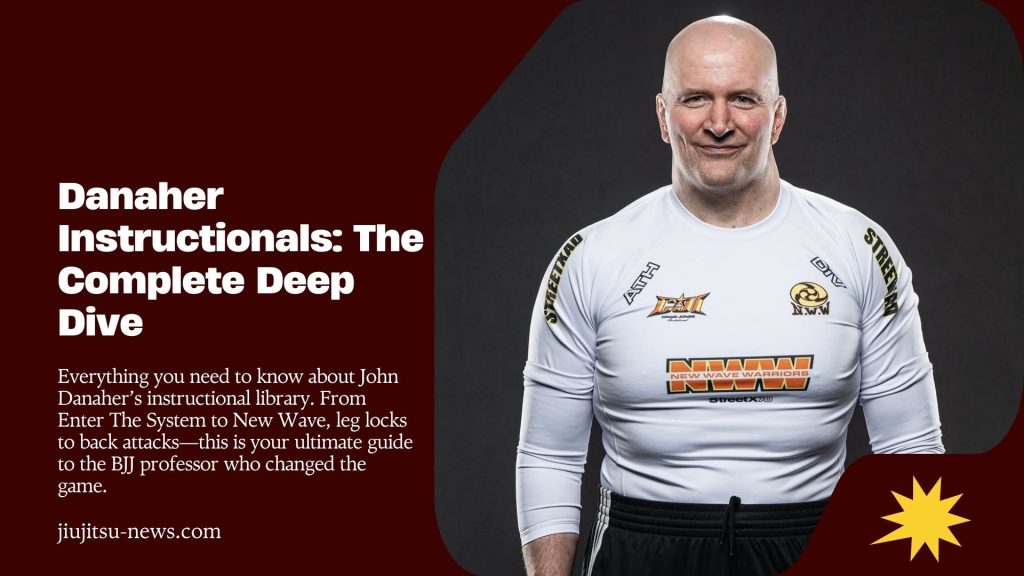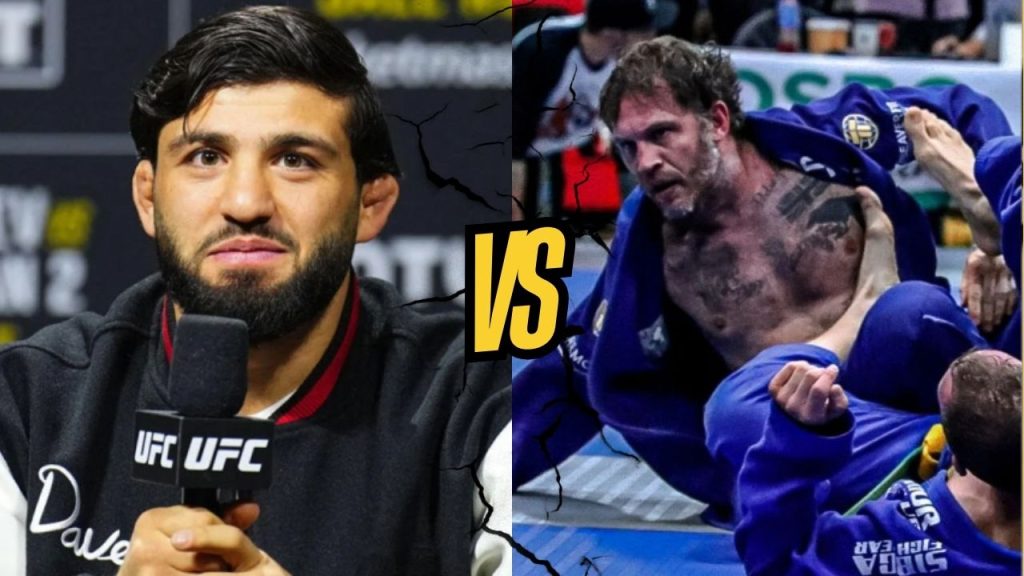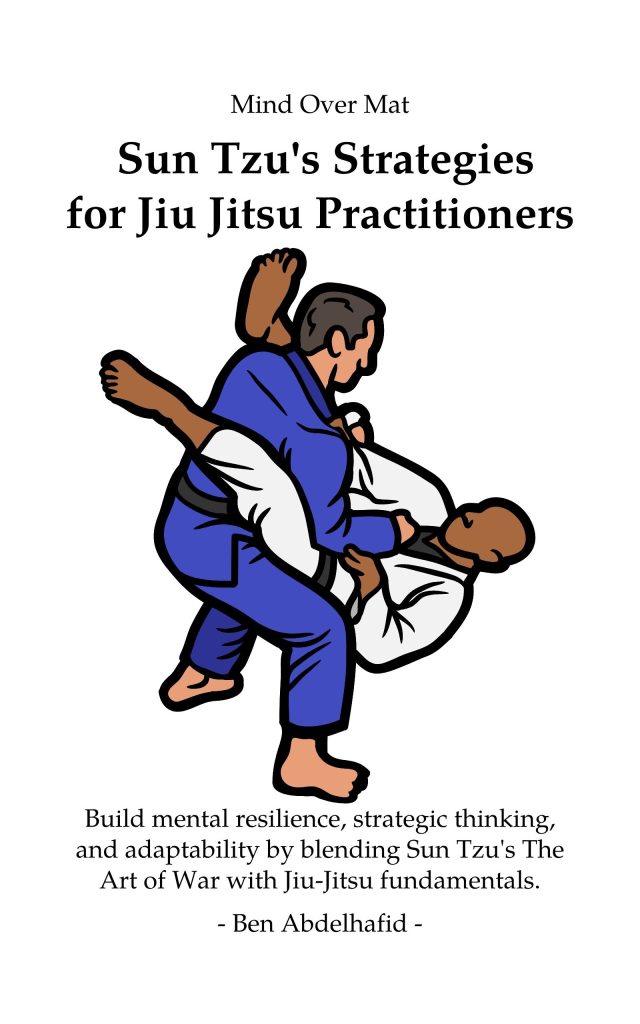
Chapter 10: Putting Sun Tzu’s Advice to Use in Everyday Life
The Lessons Outside of the Mat
Athletes who practice jiu-jitsu do more than just execute moves on the mats. They go on a deep journey of self-discovery and personal growth.
These ideas show how important it is to have mental toughness, be able to change, and think strategically.
And, these skills can be used in training and in everyday life. By knowing these ideas, athletes can develop a way of thinking that goes beyond the sport and helps them do better in other areas of their lives as well.
One of the most important things Sun Tzu taught us is how important it is to know ourselves and our enemies.
When used in jiu-jitsu, this means being aware of your own skills and weaknesses.
Practitioners frequently think about their work and find ways to improve it through self-reflection. This way of thinking about yourself encourages a growth mindset, which makes people more likely to take on tasks instead of avoiding them.
Another important idea in Sun Tzu’s philosophy that has a clear connection to jiu-jitsu is adaptability.
To be successful at wrestling, you need to be able to change your plan based on what your opponent does. This flexibility not only helps people get past problems on the mat, but it also gets them ready for how life can change quickly.
While practicing jiu-jitsu, people learn skills that help them handle unexpected problems at work or in their personal lives with calm and smart thinking.
Sun Tzu stressed the importance of planning, which is also very important in jiu-jitsu techniques.
You can think of each training lesson as a tactical exercise where people learn how to use what they see to make and carry out plans.
This planned way of thinking helps you think critically and solve problems that you might face in real life.
Jiu-jitsu fans who understand the ins and outs of strategy not only do better in competition, but they also have better lives in general because it helps them plan and carry out their plans more effectively in many areas of their lives.
Lastly, the sense of community and friendship that grows in jiu-jitsu training rooms is a great example of how to work together and help each other.
Sun Tzu knew how important it was to work together and form partnerships in order to win.
People who practice jiu-jitsu learn how important it is to work with training partners, share what they know, and help each other grow.
This feeling of community reinforces the idea that success is often a group effort. It teaches people how important it is to make friends and work together, which can help everyone succeed outside of the dojo.
How to Think Strategically in Everyday Life
Jiu-jitsu practitioners need to be able to think strategically because it helps them make decisions and perform better overall on the ground.
Before people can use strategic thinking in everyday life, they need to understand that each sparring session or fight isn’t just about how strong you are physically, but also how sharp your mind is.
Fans of jiu-jitsu can now approach their practice with an attitude that stresses planning ahead, being flexible, and taking calculated risks—all of which are ideas that are echoed in Sun Tzu’s writings.
In jiu-jitsu, being able to figure out your opponent’s skills and weaknesses is the first step in strategic thinking.
Sun Tzu said that you should know yourself and your enemy.
In the same way, jiu-jitsu practitioners should study their opponents while they train and compete.
This means keeping an eye on their movements, the methods they like to use, and any possible weak spots.
By gathering this information, a practitioner can come up with a plan that plays to their own strengths and takes advantage of their opponent’s flaws, which will lead to better performance and results.
Being able to change is another important part of strategic thinking. Things can change quickly in jiu-jitsu. An opponent may block a move or change their plan at the last minute.
Practitioners need to be ready to change how they do things in real time, like a general changing how they fight as the war goes on and off.
Drills that mimic unpredictable situations can help people become more flexible. These drills help people learn how to make quick decisions and have a strong mindset that welcomes change instead of being afraid of it.
In jiu-jitsu, planning and preparation are also important parts of strategic thinking. Sun Tzu said that preparation was very important.In the same way, practitioners should plan their training lessons by making a list of the skills they want to improve.
This strategic planning goes beyond individual training and includes getting ready for competitions, where practitioners can study their possible opponents and come up with game plans that work with the way they play.
People who practice improve their chances of success on and off the mat by being proactive instead of reacting.
Lastly, using strategic thinking in everyday life can help you grow as a person and make ties in the jiu-jitsu community better.
By following the rules of strategy, practitioners can create a more helpful training space where sharing ideas and experiences becomes a group effort.
Finally, thinking strategically while doing jiu-jitsu regularly gives people the tools they need to be successful in life and in competition.
Building a Warrior’s Spirit Outside of Jiu-Jitsu
Developing a fighting spirit outside of Jiu-Jitsu means building mental toughness, discipline, and a strategic mind that you can use in all parts of your life.
The essence of a warrior shows up in personal challenges, career pursuits, and relationships with other people. By following Sun Tzu’s advice, Jiu-Jitsu practitioners can build a way of thinking that not only improves their skills but also makes them stronger in everyday life.
Being aware and reflecting on yourself are two practices that can help you grow this spirit. Meditation and writing in a book can help people get in touch with their deepest feelings and thoughts, which can lead to a better understanding of who they are.
This self-reflection fits with Sun Tzu’s advice to learn about yourself and your surroundings. Jiu-Jitsu practitioners can face challenges with clarity and purpose if they know their own strengths and weaknesses, like a general getting ready for war.
Getting fit outside of Jiu-Jitsu is also important for building a warrior’s spirit. Doing things like running, strength training, or martial arts can make you stronger mentally and physically.
This dedication to health is similar to the discipline needed on the mat and supports the mindset of a fighter. Sun Tzu thought that training and preparation are key to success.
For this reason, keeping up a strong fitness routine builds on the skills learned in Jiu Jitsu and gets the body and mind ready for any task.
Building a supportive group is another part of developing a warrior’s spirit. Being around people who have the same goals and values as you can help you stay motivated and encourage you.
Taking part in workshops or talks about Sun Tzu’s teachings and Jiu Jitsu can help you learn new things and make new friends.
This network not only helps people through hard times, but it also acts as a talking board for ideas and plans, which is good for growth as a whole.
Lastly, using Sun Tzu’s ideas to deal with daily problems can make you a stronger warrior.
Having a strategic mindset can help you get better results in negotiations, fixing problems, or personal fights.
Jiu-jitsu practitioners can handle life’s problems with grace and confidence by remembering Sun Tzu’s advice about the value of patience, timing, and adaptability.
People can develop a strong, warrior-like spirit that improves both their Jiu-Jitsu practice and their life outside of the dojo by using these techniques in their daily lives.



